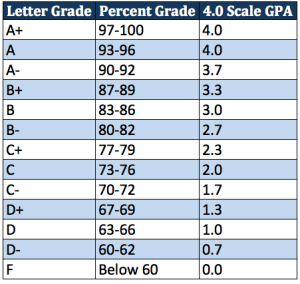Mental health is a topic that isn’t often talked or written about.
It’s not a sexy subject to bring up on a first date. It’s not what girls discuss when they’re getting ready to go out. And it’s not the first thing you and your buddies talk about when you’re having a lazy Saturday afternoon watching college football.
However, with that said, the topic needs more attention. It’s critical that young adults who are dealing with depression in college know what to do and where to go for help.
Because when they have this information and support, they can lead a healthier life. Without it, they can feel trapped and alone as their situation only gets worse.
I made sure to discuss mental health in How To College, as Health & Fitness is one of nine sections in my book. However, I wanted to highlight this issue more by interviewing Derek Malenczak, an instructor in the Department of Psychiatric Rehabilitation & Counseling Professions at Rutgers University.
For a deeper analysis into the mental health topic, let’s see what Derek has to say.
——
Brian: Why should college students take their mental health seriously?
Derek: There a few reasons that stand out to me why college students in particular should be paying attention to their mental health. First off, traditional students (that is, students who enter college right out of high school) are typically at an age (18-22) when mental health symptoms first begin to develop for many people.
So somebody could have been feeling pretty good throughout high school, and begin to experience different symptoms (feeling sad/anxious more often, changes in eating/sleeping habits, loss of motivation to do things previously enjoyed, etc.) more and more often (or severely) as they progress through their college years.
Even if you might be past that “age of onset” (when the illness starts) for many mental illnesses, older students should also be paying attention to their mental health. College students face an incredible amount of stress that is unique to them.
College is either a part-time or full-time job for people, and the more commitments you take on and manage (job, relationships, children, sports, hobbies, etc.), the more the stress level can increase.
Brian: With an overloaded schedule, the average college student is stressed out. What are some effective solutions to release this stress in a healthy way?
Derek: My first suggestion would be to not overload your schedule! I know, I know, easier said than done, but this is especially important when you first begin college, and you’re not sure of your personal limits yet. Being in a new town, or new living situation is going to compound this stress, so factoring in all the changes that are going to occur and allowing yourself to slowly work up to your desired class load can be a helpful strategy for many.
I don’t talk so much about releasing stress as managing it. For me, it’s never gone completely, so I’ve come to terms with the fact that life is stressful, use my resources and supports, and chip away at tasks. Getting behind with a task is where stress starts to get unmanageable for most.
Whichever way you choose to tackle stress, your calendar/time-tracking system is an indispensable tool. Sorry everyone, in my world, this is non-negotiable (my guess is Brian would agree). Simply put, there are too many important dates, deadlines and appointments to successfully manage school without one.
Make sure you’re aware of all your stress points (coming due dates, where do you have to be) by writing them down. The act of writing down what you need to do, even when it’s a lot of stuff, will actually decrease the stress you feel. The brain stresses more when there is a great deal to do and it can’t keep track of it all.
Get in the routine of doing the same things, at the same time, in the same place (waking up, studying, exercising, etc.), which will help you from falling behind with ongoing school tasks like text-book reading. A little at a time, more often, is almost always preferable to less frequent marathon blocks of time dedicated to school, which aren’t usually so productive.
Brian: Does taking care of your physical body affect the health of your mind? Please explain why or why not.
Derek: Absolutely. The term that comes to mind is wellness, or the idea that taking care of the whole body is essential for recovery from any illness, including mental illness. According to the Substance Abuse and Mental Health Services Administration (SAMHSA), there are eight dimensions of wellness.
Think about somebody who broke their leg. Most people would assume that the recovery from a broken leg is completely physical, but this thinking ignores the emotional side of that kind of recovery. How might a lack of motivation impact the success of one’s physical therapy? What if someone develops depression as a result from missing out on activities due to their immobility?
Now on the flip side, consider somebody who is depressed that can’t figure out why. The solution to their depression might lie in some physical root cause, like a chemical imbalance in the brain, which can be treated with medication.
It could also be a hormonal imbalance, or nutritional deficiency, so it’s important to rule out any physical causes for mental health issues in the diagnosis process.
There’s also plenty of research out there to support the fact that our body makes its own feel-good chemicals (endorphins), and they are fairly easy to release them into your body. Everybody thinks of exercise, but there are other ways to release endorphins too.
Brian: How would a young adult know if they’re depressed?
Derek: Depression manifests in different ways depending on the person. For instance, some people report trouble sleeping as a symptom of their depression; others can’t drag themselves out of bed.
That being said, in my experience, there are three tell-tale signs that I would look for to be able to quickly assess if it’s depression, or just a mild bout of feeling sad or down on yourself. It’s important to note that I’d be looking for changes to these things from the person’s typical baseline attitudes/behavior:
- Feelings of hopelessness
- Social withdrawal
- Not getting enjoyment out of things that used to make you happy
Brian: What do you recommend to a college student who is depressed?
Derek: Don’t stay silent. Find help. Whatever it takes, whoever it takes. It could be family, friend, on-campus supports (Disability Services Department, Counseling Services), religious affiliations, off-campus supports (Private therapist, Support groups) advocacy groups, there’s a support out there for everyone, the trick is to find the ones that are right for you. Know that you might not find the right one right away, and sometimes you’ll need help/reassurance to keep looking until you find something that fits because when you do, the recovery that can take place… is amazing.
Brian: What action would you take if you felt that your friend may be suicidal?
Derek: I’d try to find out what I could. I wouldn’t dance around the topic. You can, and should be straight-forward and ask someone if you’re legitimately worried.
“Are you thinking of hurting yourself?” is a perfectly reasonable question to ask someone if you’re concerned for their safety. Get help if your gut tells you to do so.
Brian: What do universities do to support the mental health of their students?
Derek: Not enough, in my opinion. For as big an issue as college student mental health seems to be, there do not seem to be enough resources out there to meet demand.
If you are able to find on-campus services in some of the places we’ve discussed already (mainly through Disability Services or Counseling Services) don’t be surprised if the services they give you are designed for the short-term. They aren’t designed or usually equipped to provide intense or long-lasting types of services like counseling/therapy.
Another short-term options might be to investigate if your school has a graduate program for counseling or social work. Sometimes as part of their academic requirements, graduate students have to ‘practice’ working with individuals under the close supervision of a credentialed person. These may not be the most high-quality services out there, but they should be free.
If you think you need longer term help, it’s probably best to seek it off-campus, but then you run into the insurance issue (most schools include the services described earlier as part of the cost of tuition). If you have no insurance but need to see a therapist, there are options. Look for therapists that advertise they charge on a “sliding scale”, meaning you pay in proportion to what you earn (which for many students is very little).
Lastly, the world of tele-therapy is getting really big right now and might be a good, flexible option. As an example, check out Talkspace to see what it’s like.
Brian: What are you up to now, and where can readers go to learn more about you?
Derek: First off, thanks to Brian for allowing me to come on your blog and make this guest post! I don’t do much blogging, so I appreciated the opportunity.
The College Student Success Podcast can be found at: www.collegestudentsuccesspodcast.com
You can subscribe to the podcast via iTunes or Google Play.
I’m also very interested in online learning, and recently began selling a course to help college students who are brand new to online learning. More info can be found at www.aceyouronlineclass.com.
——
(Brian is back.) For students who aren’t regularly checking in with themselves, depression can happen to them at any time—especially with all of the responsibilities thrown at you during college.
So promise yourself that you’ll take care of your body and mind just as much as you take care of your classes and social life. No class, student organization, or job is worth sacrificing your mental health for. If you’re overinvolved, sometimes quitting a few student organizations is the best thing for you, like Derek said.
And if you don’t feel right, immediately seek help. Talk to your most trusted friends about what’s wrong. There are also people out there ready to offer their professional assistance. All you need to do is ask. It’s worth it for your happiness.
What questions do you have about mental health for Derek?



